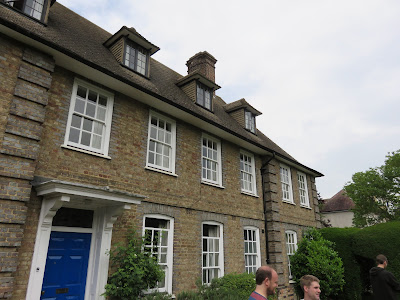I read earlier today Neil O'Hara's short piece "Some anecdotes about Wittgenstein," which is forthcoming in Philosophical Investigations. (It's amazing to think that there are still instances of the person Wittgenstein being in the living memory of people; Br. Herbert Kaden OSB, whose memories are conveyed in the short piece, just passed away within the year.)
One anecdote included is possibly significant when it comes to the vexing question of Wittgenstein's engagement with Catholicism (and perhaps, his "religiosity"). It concerns his relationship to Father Conrad, who he met with in the months before his death and who, when Wittgenstein was on his deathbed, also performed the office for the dying and gave absolution for Wittgenstein.
There's some ambiguity on how to think about the Catholic rites performed for Wittgenstein before and after his death. Ray Monk describes Drury’s uncertainty about the fittingness of the ceremonies for Wittgenstein in Ludwig Wittgenstein: The Duty of Genius. According to Fr. Conrad, Wittgenstein took communion & wished "to be reconciled to the Church.” That's a significant piece of information because it suggests more personal engagement with Catholic tradition at the end of his life than I had been aware of.
It’s a good idea not to jump to conclusions here. This doesn't mean that it's right to think that Wittgenstein was a Catholic (whatever that might be taken to mean). It's never that simple with Wittgenstein at least. This anecdote should be read in concert with the other perspectives and memories that are available (and that one finds especially in The Duty of Genius). The ambiguity one finds in Wittgenstein's connection to Catholicism may well remain.
If one tries to force Wittgenstein into some previously established mold of what it is to be religious or to be Catholic, then these anecdotes are especially perplexing. Instead one might draw another conclusion: that ambiguous engagement with a religion is still a form of engagement with religion. This latter point seems quite apt today when religious language and practices may remain meaningful for people even if their connections to institutional forms of religiosity have collapsed or are otherwise irretrievable.


